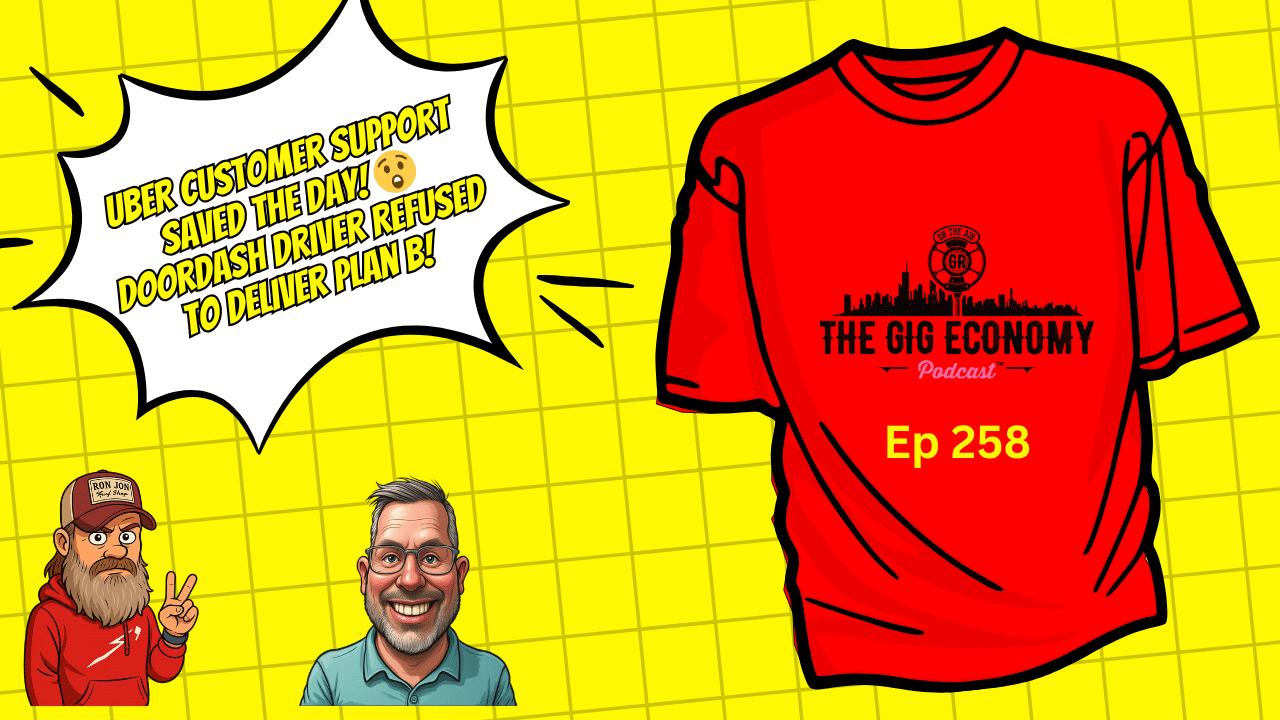Nashville adventures, dirty Uber cars, and customer service nightmares – the latest episode of the Gig Economy Podcast covered it all as the hosts returned from their meetup in Tennessee. What began as a casual gathering of podcast hosts and listeners quickly transformed into a weekend filled with gambling, games, and gig economy insights from the trenches.
The Nashville getaway featured a surprising amount of gambling on unexpected things – from a plastic horse racing game that had the group betting $5 per race to a crocodile tooth app game at a local bar. As one host admitted, “Jason was on fire Saturday night” when it came to the horse racing game, clearing about $100 over the weekend at $5 per match. The mini-vacation served as both entertainment and a reminder of how gig workers create community despite the independent nature of their work.
Upon returning to their respective cities, the podcast delved into several significant developments in the gig economy landscape. Most notably, the New York Taxi Commission has voted unanimously to restrict the controversial driver “lockouts” that Uber and Lyft had been implementing. Under new amendments, rideshare companies must now provide at least 72 hours’ notice to affected drivers before locking them out, and cannot lock out drivers for at least 16 hours once they start accepting trips. This represents a significant win for New York drivers who had been dealing with arbitrary lockouts that severely limited their ability to earn.
The episode also covered the expanding presence of automated services in the gig economy. Atlanta has become the fourth city to implement robot deliveries for Uber Eats, joining Los Angeles, Miami, and Dallas-Fort Worth. Orders from select restaurants, including Real Tacos, Ponco Chicken, and Shake Shack, can now be delivered by small autonomous robots that can travel up to four miles per hour with a 48-mile range. This advancement signals yet another step toward automation in an industry that currently provides income for millions of human workers.
Customer service issues took center stage as the hosts shared both personal experiences and viral stories. A particularly telling video contrasted Uber Eats’ customer service when the platform first launched (extremely accommodating with generous refunds and credits) versus the current state (unhelpful and dismissive). This decline in customer service quality parallels what many gig workers have experienced with declining pay over time – as platforms mature, both worker compensation and customer service seem to deteriorate.
Perhaps the most alarming story involved an imposter Uber driver in Fort Lauderdale who nearly got away with having his passenger drive through a security checkpoint. The driver, who was using someone else’s account, claimed he had forgotten his ID and convinced his passenger to switch seats before reaching a port security checkpoint where IDs were required. When police discovered the deception, the driver was arrested, and the passenger was left stranded, with Uber initially refusing to refund the ride until media inquiries pressured them to do so.
The episode concluded with a discussion of direct negotiation between passengers and drivers to circumvent app fees. While some customers are offering to pay drivers directly in cash – often at a price point that benefits both parties while cutting out the middleman, the hosts emphasized that such arrangements come with serious risks, particularly regarding insurance coverage in the event of an accident. Despite the temptation of immediate higher pay, they cautioned against making this a regular practice.

